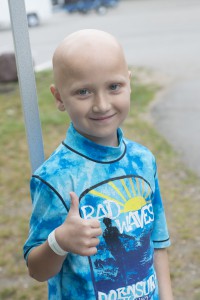 A University of Queensland program can reduce serious behavioural problems in children with disabilities. The new UQ Stepping Stones Triple P program has been shown to help reduce aggression, noncompliance and defiance in children with developmental disabilities, such as autism and learning disabilities. The program offers tips and strategies to manage the big and small problems of family life. It also helps to encourage good behaviour, cope with stress and teach children new skills.
A University of Queensland program can reduce serious behavioural problems in children with disabilities. The new UQ Stepping Stones Triple P program has been shown to help reduce aggression, noncompliance and defiance in children with developmental disabilities, such as autism and learning disabilities. The program offers tips and strategies to manage the big and small problems of family life. It also helps to encourage good behaviour, cope with stress and teach children new skills.
According to Triple P program founder, Professor Matt Sanders, children with developmental disabilities were much more likely than typically developing children to have aggressive or disruptive behaviour. Also, mothers of children with developmental disabilities were more likely to display symptoms of depression and anxiety.
“We know that parent stress can exacerbate disruptive behaviours in children with disabilities,” he said. “It is important that parents of children with disabilities who are concerned about their behaviour seek help now to prevent more serious problems occurring later in life.”
He said that many parent may not realise they could be reinforcing the behaviour they are trying to reduce, because they are inadvertently rewarding the behaviour.
“There is diversity of opinion on how best to deal with behavioural problems in children with disabilities so it is important parents feel confident that the type of help they are seeking has been shown to work.”
The program is available free to parents of children with disability in Queensland and Victoria with a roll-out to New South Wales in mid-2015.
For more information visit: http://www.triplep-steppingstones.net
